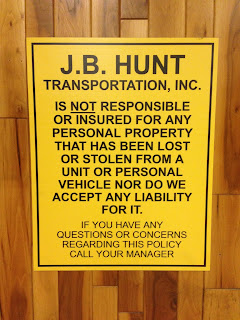Parents may hesitate to hand teens the keys to the family car, but Congress is proposing to allow drivers as young as 18 to get behind the wheel of big rigs on the nation's interstates.
Federal regulations currently require drivers be at least 21 before they can drive commercial trucks across state lines, but a bill introduced this week by Republican senators would allow contiguous states that join together in "compacts" to drop the age threshold to 18 for interstate trips. There is no limit on the number of states that could join the compacts.
After four years, the Transportation secretary is supposed to report to Congress on whether teens have "an equivalent level of safety" in comparison with older truckers.
In 2013, all drivers ages 18-20 had a fatal crash involvement rate, per 100,000 licensed drivers, that was 66 percent higher than drivers who were age 21 years or older, according to the Transportation Department's Fatality Analysis Reporting System, although the total number of crash deaths among teens has been declining since 2002.
The change was sought by the trucking industry to help address a shortage of truck drivers. The American Trucking Associations estimates that the current shortage of drivers is roughly 35,000 to 40,000, but because of retirements and individuals leaving the industry, trucking companies will need to recruit nearly 100,000 new drivers a year over the next decade to keep pace with the country's freight needs.
But Jackie Gillan, president of Advocates for Highway and Auto Safety, said allowing teens to drive trucks weighing as much as 80,000 pounds and to work as many as 82 hours a week, as is permitted in the truck industry, is a "catastrophe waiting to happen."
"The combination of inexperience, high-risk driving and large trucks can cause unbelievable devastation," she said.
Dave Osiecki, chief of advocacy for trucking associations, said states already allow teens to drive commercial trucks unlimited miles within their borders. For example, it makes no sense to allow a teen truck driver to drive hundreds of miles from one end to the other of a state like Virginia, but prohibit the same driver from crossing the Potomac River into Washington, he said.
"We absolutely support" lowering the age limit, he said. "It would be good for our industry, it would be good for commerce, it would be good for the economy."
Legislation to allow states to lower the age for a commercial, interstate license to 18 was first introduced by Sen. Deb Fischer, R-Neb., and was incorporated into a larger transportation bill introduced this week by Senate Commerce Committee Chairman John Thune, R-S.D., Sen.
Jerry Moran, R-Kan., and Fischer.
The bill would restrict teen truckers from hauling hazardous materials or operating "special configurations," which are generally defined as oversized or overweight loads. States and the U.S. Department of Transportation would also be allowed impose other restrictions if they wish.
States wouldn't be obligated to join the compacts, but Gillan said she expects state officials would be under pressure from trucking industry to do so.
To obtain an interstate commercial driver's license, drivers must pass a written knowledge test and a driving skills test administered by a state motor vehicles department. But there is no requirement that drivers first receive on the road training or attend a training school, Gillan said.
Labor unions have said the driver shortage could be eliminated by raising truckers' wages and improving working conditions.
A decade ago the Bush administration looked at lowering the commercial truck driving age to 18, but ultimately decided against doing that because the public comments the government received were overwhelmingly against the idea.

















































